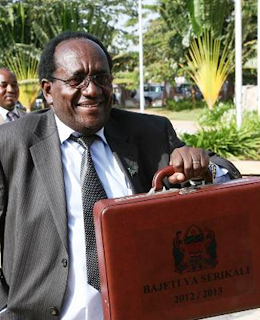
By Alawi Masare
The Citizen Reporter
Dar es Salaam. The Minister for Finance, Dr William Mgimwa, has outlined eight areas including Information and Communication Technology (ICT), ports and railways as his priorities in the next national Budget.
Other priorities in Dr Mgimwa’s Sh17.7 trillion financial plan for 2013/14 include power improvement, water, education, health and entrepreneurship services and agriculture.
Contrary to what is stipulated in the Budget Frame for 2013/14 – 2015/16, Dr Mgimwa said in Dar es Salaam yesterday that the government is expecting to collect Sh17.7 trillion for the next financial year.
On ports, the Finance minister said substantial amounts would go towards improving the Mtwara Port and initial work towards the construction of a new port at Bagamoyo.
“We also want to improve water supply, review the education system in response to findings of the recently formed education commission,” said Dr Mgimwa.
Out of the Sh17.7 trillion, Dr Mgimwa said, the government plans to spend Sh5.2 trillion, equivalent to 35 per cent, for development expenditure and Sh12.6 trillion, 65 per cent of the total budget for recurrent expenditure.
In the development expenditure, Sh2.46 trillion would come from domestic sources and Sh2.69 trillion would be sourced externally.
The central government collections are expected to be Sh10.6 trillion from both tax and non-tax revenue.
Local authorities will contribute Sh372.6 billion while grants and external loans will bring in Sh3.85 trillion.
Domestic and non-concessional loans will make available a total of Sh2.9 trillion.
In what gives the impression that donor funding is getting increasingly unreliable, Dr Mgimwa poined out that until December 2012, the country’s development partners had disbursed only 33 per cent of their total pledges.
He was, however, confident that by the end of the current financial year, much more could have been disbursed.
”Basically, it is too early to comment on the contribution of development partners to Tanzania’s Budget.
This is because the current financial year is still far from over, but as of December last year, donors had given us just 33 per cent of the total amount they had promised,” he told journalists in Dar es Salaam yesterday.
The country’s aim, he said was to reduce dependence on donors to the country’s gross domestic product by 0.5 per cent.
“It currently stands at 5.5 per cent of our GDP, but our goal is to bring it down to five per cent in the 2013/2014 budget,” he said.
No comments:
Post a Comment